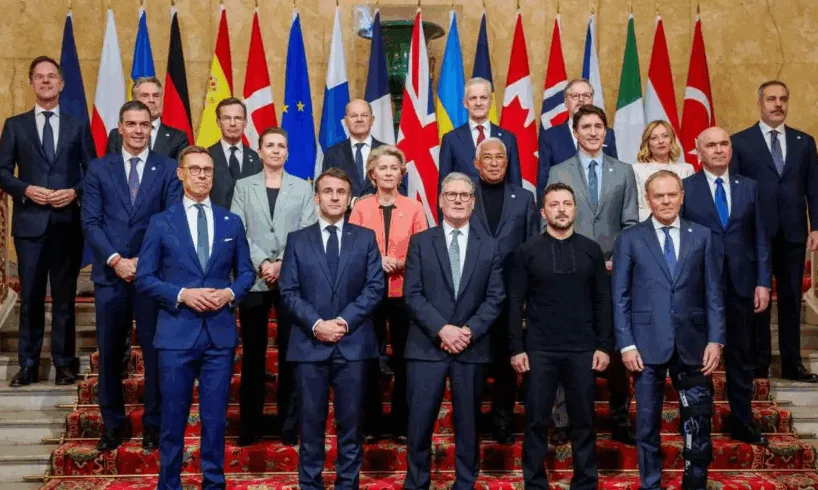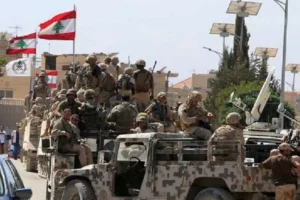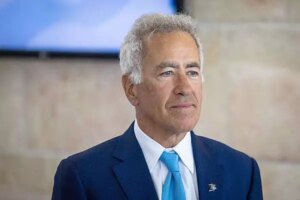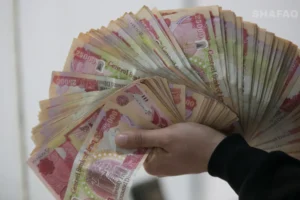
2025-08-18T22:28:42+00:00
font
Enable Reading Mode
A-
A
A+
Shafaq News – Washington
US President Donald Trump met on Monday with Ukrainian President Volodymyr Zelenskyy and seven senior European leaders at the White House to form a unified front after Trump’s summit with Russian President Vladimir Putin in Alaska.
President Donald J. Trump hosts Ukrainian President Zelenskyy and European allies at the White House for a multilateral meeting on peace talks. “We have had a very successful day so far. We are all working for the same goal. We want to stop the killing and resolve this.” pic.twitter.com/qVxIStibBE
— The White House (@WhiteHouse) August 18, 2025
A senior European official criticized Trump’s reception of Putin, saying the Russian leader was welcomed “like a conqueror” while his forces continued striking Ukrainian cities. The official voiced concern that US policy may be shifting from pressuring Moscow to accommodating it.
Denis Korkodinov, head of the International Center for Political Analysis and Forecasting, told Erem News the Alaska summit was a symbolic victory for Moscow and revealed a strategic change in Washington’s stance. He said the US was moving away from a hard line on Ukraine in favor of a “comprehensive peace agreement” largely on Russian terms.
И снова я в эмиратской прессе (Дубаи)https://t.co/5Ol0OVi9Q5
— Denis Korkodinov (@DenisKorkodinov) August 18, 2025
According to Korkodinov, this weakened Kyiv on the battlefield, as Russia took advantage of reduced US pressure to expand operations. Trump’s references to “territorial concessions,” he added, left Zelenskyy facing what he called an impossible choice between sovereignty and the loss of land. He described the proposed security guarantees as vague and unreliable, arguing that dialogue is narrowing to a US–Russia channel that sidelines both Europe and Ukraine.
“Putin gained legitimacy and the chance to consolidate his gains, while Trump presented himself as a peacemaker. Ukraine has become little more than a bargaining chip,” Korkodinov said.
Hani al-Jammal, head of the European and Strategic Studies Unit at the Arab Center, said the Alaska summit may not end the war immediately but could open the way to broader understandings on spheres of influence between Washington and Moscow. He pointed to potential deals covering economics, technology, energy, and the Arctic, in exchange for concessions such as recognition of Russian control over parts of eastern Ukraine and repositioning in Libya. He also suggested Washington could gain strategic advantages in the Zangezur corridor in the South Caucasus, enabling pressure on both China and Iran.
On security guarantees for Kyiv, al-Jammal said these may be Zelenskyy’s final card, with Russia potentially accepting a collective defense clause resembling NATO’s Article 5 in any future deal. But he noted such guarantees remain tied to US interests, particularly its push to secure mineral agreements with Ukraine.
The European response was immediate. German Chancellor Friedrich Merz, French President Emmanuel Macron, British Prime Minister Keir Starmer, Italian Prime Minister Giorgia Meloni, European Commission President Ursula von der Leyen, and NATO Secretary-General Mark Rutte all traveled to Washington alongside Zelenskyy to signal that Europe must not be left out of decisions affecting its security.
Il mio intervento nel corso del Vertice alla Casa Bianca. pic.twitter.com/Gj550OdwvJ
— Giorgia Meloni (@GiorgiaMeloni) August 18, 2025
Aux côtés de l’Ukraine, pour la paix et la sécurité de l’Europe et de la France. pic.twitter.com/MjrJtESc0O
— Emmanuel Macron (@EmmanuelMacron) August 18, 2025
Ukraine’s future matters to us all. pic.twitter.com/d7kZkVrGnZ
— Keir Starmer (@Keir_Starmer) August 18, 2025
Yet behind the show of unity, analysts noted Europe’s persistent weakness. The continent has yet to produce a coherent defense strategy of its own and remains reliant on US protection, which some fear is shrinking. Wide disparities in military and economic capacity across the EU continue to make talk of a European army more slogan than reality.
One European diplomat summed up the stakes starkly, “If we are not at the negotiating table, we will be on the menu.”





